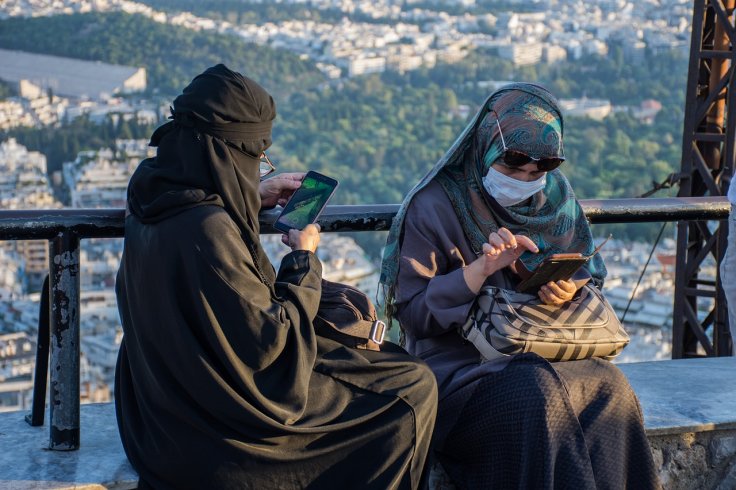Female students in Saudi Arabia are banned from wearing the abaya in examination halls and must wear school uniforms which adhere to the kingdom's public decency regulations.
An abaya, similar to a cloak, is a long-sleeved and floor-long garment designed to be free and flowing, hiding the body's curves – a modest attire.
The Saudi Examination and Training Evaluation Commission (ETEC), which is responsible for planning, evaluation, assessment and accreditation of educational and training systems, in its latest announcement said female students must wear school uniforms during examination period.
The uniform must comply with effective regulations while also adhering to public decency.

MBS Relaxes A Bit on Women's Rights
Prince Mohammad bin Salman (MBS) said in 2018 that women in Saudi Arabia need not wear the abaya but their attire has to be decent and respectful. Under the reform-minded ruler, the kingdom has seen an expansion in women's rights including a decision to allow women to attend mixed public sporting events and right to drive cars. The West applauded this as a proof of a new progressive trend towards modernization in a country which for decades has been criticized for being traditionally conservative.
MBS in an interview had said that the laws are very clear and stipulated in the laws of sharia that women wear decent, respectful clothing, like men. "This, however, does not particularly specify a black abaya or a black head cover. The decision is entirely left for women to decide what type of decent and respectful attire she chooses to wear."
It should be noted that Saudi Arabia has no written legal code to go with the texts making up its sharia. But the Saudi authorities, particularly the kingdom's police and judiciary, have been enforcing a strict dress code requiring Saudi women to wear abayas as well as to cover their faces and hair.









